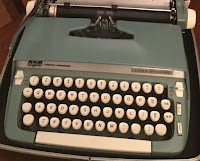I'll get to Paul McCartney, just
hear me out.
My husband and I traveled to the
Azores, Ireland, and flew to Liverpool as part of our 35th wedding anniversary
celebration in April of this year (2018).
The Azores and Ireland were part of
our first transatlantic cruise. But why fly to Liverpool?
My father's side of the family
originate from the Merseyside area. So I wanted to connect with cousins and get
some genealogy answers for a project. Namely, I was looking for details about
my 2x great grandparents Matthew and Anne Hayden, who both came to England from
Ireland. Their daughter, my great grandmother, Esther Hayden, came to America
from the shores of Liverpool to Ellis Island aboard Cunard's Carmania in
September 19, 1906.
Funny, my grandmother cruised to
America, and my first trip to Europe is via cruise ship.
Anyway, while on our cruise an act
called: Just John & Paul were part of the entertainment.
I found myself obsessed. I can't
explain how two people can replicate the Beatles as they do, but I was
immediately transported back to my childhood. I received my first record player
and The Early Beatles album at age six.
I wore out the album.
While we loved the Azores and
Ireland, it was Liverpool that captivated me. Between the Maritime Museum and
all thing Beatles, I felt supernaturally connected. I didn't get the answers I
was looking for regarding my great grandparents, so I must return.
However, what I did find was my true
self. A part of me that has been buried since growing into a teen and then an
adult.
The Beatles brought me back to a
time of wonder. A time when my parents were still together. When our family was
happy. When anything was possible. When black and white television was cool.
When using a telephone was limited and you had to take turns to talk.
When I could just lie on my stomach and listen and sing along to Love Me Do,
Baby It's You, Do You Want To Know A Secret?
As soon as Tom and I got home from
our trip, I discovered SiriusXm's The Beatles Channel. My husband is subjected
to my renewed obsession. Thankfully he waited several weeks before he asked if
we could listen to other music. LOL
Ironically, Paul McCartney's Egypt
Station promotions and his Carpool Karaoke on James Corden followed. I am
ecstatic and jealous of those who were in Liverpool during that time! But also
thrilled that Paul is still making music, touring and I'm determined to see him
before his tour is done.
So, I challenge you to find your
true self. My inner child is happy to be back, and she still has a crush on
Paul McCartney. Shh!
 |
| Just John & Paul on the Celebrity Eclipse |
 |
| Just John & Paul on the Celebrity Eclipse |
 |
| Just John & Paul on the Celebrity Eclipse |
 |
| My husband Tom on the left in Waterford, Ireland dancing with another cruise acquaintance |
 |
| The Cavern Liverpool |
 |
| The Beatles giving us a tour of Liverpool |








